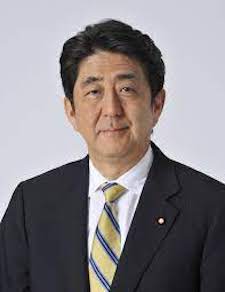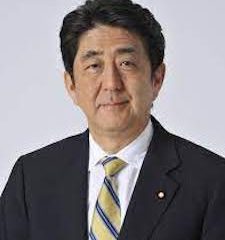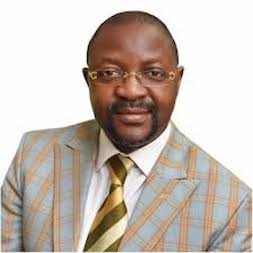Foreign News
Body of Murdered Former Prime Minister, Abe Back in Tokyo

The remains of murdered former prime minister Shinzo Abe are back in Tokyo, a day after he was shot dead while on the campaign trail in the old imperial city Nara.
The body of the 67-year-old was accompanied by his widow, Akie Abe, as it was transported by ambulance.
Broadcaster NHK reported that the vehicle drove to the Abe residence.
Prime Minister Fumio Kishida paid a condolence visit.
Well-wishers have been leaving flowers at the site of the shooting.
Meanwhile, the man who shot and killed former Abe on Friday has told investigators that he originally intended his target to be the leader of a religious group, Japanese news agency Kyodo reported on Saturday.
The 41-year-old Japanese man who shot Abe from behind with a home-made gun at close range during an election campaign speech in the city of Nara told investigators he had been “dissatisfied” with Abe and had wanted to kill him.
The man reportedly held a grudge against an unnamed religious group that he believed had links to Abe.
The Japanese police now face many questions about how the shooting could have happened, with experts asking why those working in Abe’s security detail were unable to prevent the attack.
“I don’t think there are enough firearms precautions in Japan given its strict gun laws,” one security expert was quoted as saying by the Nikkei newspaper.
The National Police Agency now intends to review its security arrangements for the protection of prominent figures, according to media reports.
The police searched the perpetrator’s flat on Friday, seizing several other home-made firearms.
The assassin was reportedly unemployed, but is believed to have served in the navy for three years before his discharge in 2005.
It is thought the suspect received handgun training during his time in the navy.
Japan is considered one of the safest countries in the world and has extremely strict gun laws.
The assassination happened in the run up to elections for the upper house of parliament on Sunday.
The vote is to take place as planned in spite of the attack, according to the government. (dpa/NAN)
Foreign News
Militants in Lebanon Launched 6 Suicide Drones at Israel, Causing Fire

Militants in Lebanon launched six unmanned aerial vehicles at northern Israel on Tuesday, causing fire and damage.
Only one of the drones was intercepted by the country’s Aerial Defense Array, the Israeli military said in a statement.
“One of the drones exploded near the community of Yiftah, close to the Israel-Lebanon border, sparking a fire,” he said.
The Israeli military added that several other drones caused light damage, with no causalities reported.
Israel’s state-owned Kan TV news reported that the drones were launched by Hezbollah, a Lebanese armed group and party, which had been fighting against Israel along the border since Oct. 7, 2023.
Lebanese military sources, who spoke anonymously, said that Israel’s F-15 warplanes intercepted, at very low altitudes, several drones that were heading from Lebanon to northern Israel.
Hezbollah said on Tuesday that its military wing, the Islamic Resistance, targeted Israeli officers and soldiers in the Yiftah barracks with drones while reporting casualties.
The drones targeted an Iron Dome platform in the Ramot Naftali Barracks, damaging it, he said.
The drones came after Israeli troops fired at Aalma El Chaab in southern Lebanon.
On Monday, Israeli warplanes stroked a Hezbollah military structure and infrastructure in the area of Mazraat Aaqmata in southern Lebanon.
Earlier Tuesday, Lebanese Labor Minister, Moustafa Bayram, said that Israeli attacks caused damage to around 3,000 business facilities in southern Lebanon, according to the National News Agency (NNA).
Bayram said he would contact the Arab Labor Organization and Arab member states as soon as the war ends to request a grant for people affected by Israeli attacks. (Xinhua/NAN)
Foreign News
Flames, Smoke Continue to Emerge from Massive Landfill in Delhi

Flames and columns of thick smoke continued to emerge from a massive landfill in the Indian capital city of New Delhi on Monday, officials said.
Fire fighting operations were underway and fire-fighters were splashing water on the burning mounds of garbage.
The fire has continued at the colossal landfill site since it broke out on Sunday evening.
Meanwhile, toxic fumes emanating from the landfill have left residents in the neighbourhood to gasp for breath.
“There is a pungent smell all around. The smoke is poisonous and causes irritation in the eyes,’’ Dileep Pandey said.
Pandey is a local resident, living within the area.
“We are also facing difficulty in breathing.
’’While the cause of the fire remained undetermined, authorities have initiated legal proceedings against unidentified individuals in relation to the incident.
According to the Delhi Fire Services department, the landfill caught fire because of the methane produced in the heaps of waste.
Officials listed hot and dry weather conditions as the reason behind the blaze. (Xinhua/NAN)
Foreign News
Israeli Forces Vow Response to Iran’s Attack Despite Calls for Restraint

Israelis awaited word on how Prime Minister Benjamin Netanyahu would respond to Iran’s first-ever direct attack as international pressure for restraint grew amid fears of an escalation of conflict in the Middle East.
Netanyahu on Monday summoned his war cabinet for the second time in less than 24 hours to weigh a response to Iran’s massive weekend missile and drone attack, a government source said.
While the attack caused no deaths and little damage, thanks to the air defences and countermeasures of Israel and its allies, it has increased concerns that violence rooted in the Gaza war is spreading, and fears of open war between the long-time foes.
Israeli military chief of staff Herzi Halevi said on Monday that “this launch of so many missiles – cruise missiles and drones – into Israeli territory will be met with a response” but gave no details.
Iranian Deputy Foreign Minister Ali Bagheri Kani told state TV on Monday night that Tehran’s response to any Israeli retaliation would come in “a matter of seconds, as Iran will not wait for another 12 days to respond”.
But the prospect of Israeli retaliation has alarmed many Iranians already enduring economic pain and tighter social and political controls since protests in 2022-23.
Iran launched the attack in retaliation for an airstrike on its embassy compound in Damascus on April 1 attributed to Israel, and signalled that it did not seek further escalation.
U.S. President Joe Biden told Netanyahu at the weekend that the United States, which helped Israel blunt the Iranian attack, would not participate in an Israeli counter-strike.
Since the war in Gaza began in October, clashes have erupted between Israel and Iran-aligned groups based in Lebanon, Syria, Yemen, and Iraq.
Israel said four of its soldiers were wounded hundreds of metres inside Lebanese territory overnight, the first known Israeli ground penetration into Lebanon since the Gaza war erupted, although it has traded fire with the Lebanese Hezbollah militia.
“We’re on the edge of the cliff and we have to move away from it,” Josep Borrell, the European Union’s foreign affairs chief, told Spanish radio station Onda Cero.
French President Emmanuel Macron, German Chancellor Olaf Scholz and British Foreign Secretary David Cameron made similar appeals.
Washington and UN Secretary-General Antonio Guterres also have called for restraint.
White House national security spokesman John Kirby declined on Monday to say if Biden had urged Netanyahu in talks on Saturday night to exercise restraint in responding to Iran.
“We don’t want to see a war with Iran. We don’t want to see a regional conflict,” Kirby told a briefing, adding that it was for Israel to decide “whether and how they’ll respond”.
Foreign Minister Israel Katz said he was “leading a diplomatic attack” alongside Israel’s military response, writing to 32 countries to place sanctions on Iran’s missile programme and proscribe its Revolutionary Guards Corps as a terrorist organisation.
U.S. Treasury Secretary Janet Yellen said Iran’s actions threatened stability in the Middle East and could cause economic spillovers.
The U.S. would use sanctions, and work with allies, to keep disrupting Iran’s “malign and destabilising activity”, she added.
However, some analysts said the Biden administration was unlikely to seek to sharpen sanctions on Iran’s oil exports due to worries about boosting oil prices and angering top buyer China.
In a call between the Chinese and Iranian foreign ministers, China said it believed Iran could “handle the situation well and spare the region further turmoil” while safeguarding its sovereignty and dignity, according to Chinese state media.
Russia has refrained from publicly criticising its ally Iran but has also warned against further escalation.
Iran’s retaliatory attack, involving more than 300 missiles and drones, caused modest damage in Israel and wounded a 7-year-old girl.
Most missiles and drones were shot down by Israel’s Iron Dome defence system and with help from the U.S., Britain, France and Jordan.
In Gaza itself, where more than 33,000 Palestinians have been killed in the Israeli offensive according to Gaza health ministry figures, Iran’s action drew applause.
Israel began its campaign against Hamas, the Iranian-backed Palestinian militant group that runs Gaza, after Hamas attacked Israel on Oct. 7, killing 1,200 people and taking 253 hostages, by Israeli tallies.
British Prime Minister Rishi Sunak said the Group of Seven major democracies were working on a package of coordinated measures against Iran.
Italy, which holds the rotating G7 presidency, said it was open to new sanctions and suggested any new measures would target individuals.
Iran’s attack prompted at least a dozen airlines to cancel or reroute flights, with Europe’s aviation regulator still advising caution in using Israeli and Iranian airspace. (Reuters/NAN)
























